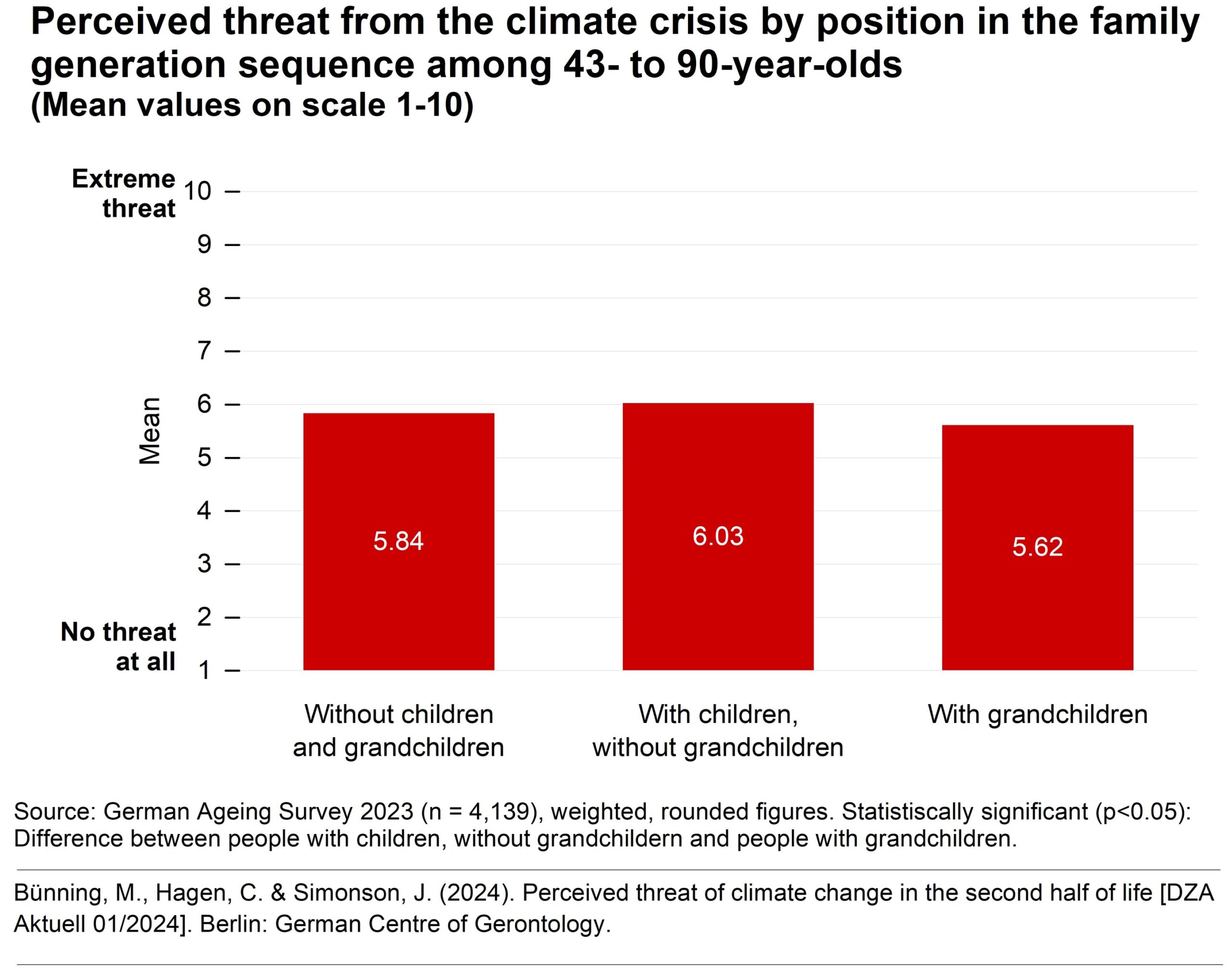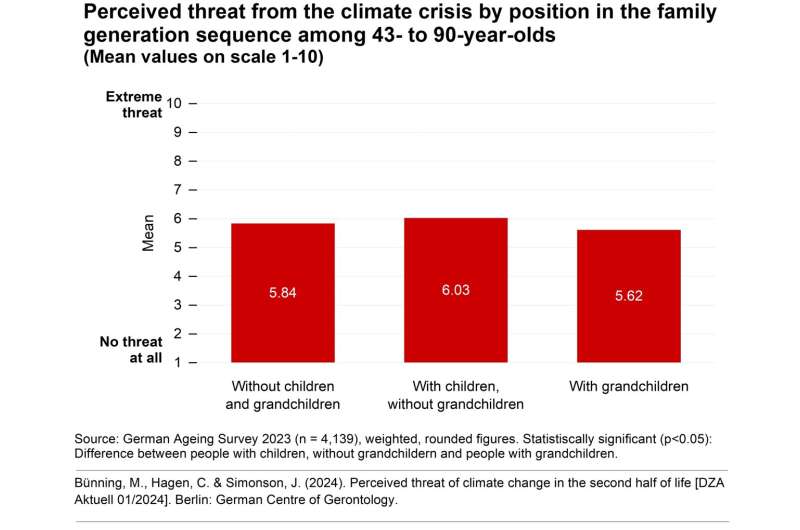

Future generations will suffer increasingly more from the consequences of climate change than we do today. Presumably, older people with children will be more worried about climate change than those of the same age without children, as they will also factor the remaining lifetime of their offspring into their assessment. Yet, this is not the case, as shown by a recent study by the German Centre of Gerontology.
The German Ageing Survey asked, “The following question is about how the climate crisis is affecting you personally and your environment and how you experience it. To what extent do you perceive the climate crisis as a threat?” The degree of threat could be indicated on a scale from 1 (no threat at all) to 10 (extreme threat).
Some results were in line with expectations—women worried more than men; people who are sick worried more than healthy people. However, the researchers were surprised by the degree of perceived threat according to family situation; people in the second half of life who had children but no grandchildren felt more threatened by the climate crisis than those with grandchildren (mean 6.03 vs. 5.62).
People who have neither children nor grandchildren were also analyzed. No significant differences were found between this group and the other two groups.
Dr. Mareike Bünning explains that “the results cannot be attributed to the older age of grandparents. There are no differences in the perceived threat of climate change by age, and even when age and generational succession are considered at the same time, the difference between parents and grandparents remains.”
But how can this difference be explained? Bünning says, “We can only speculate here at the moment. Part of the explanation could be that the grandchildren are predominantly of an age that requires a lot of care, while own children—even if they don’t yet have children themselves—are predominantly older.
“With younger children, the focus is often on coping with everyday life, while parents and grandparents of older children may have more time to think about the future.”
What’s more, children who are concerned about climate change and are committed to climate protection may inform their parents about this issue and inspire them to get involved. This is another mechanism that may only take effect once children—or grandchildren—have reached a certain age, are aware of the consequences of climate change themselves and have formed an opinion on the subject. However, further research is needed to be able to conclusively categorize the findings.
More information:
Study: Perceived threat of climate change in the second half of life
Provided by
Deutsches Zentrum für Altersfragen
Citation:
The threat posed by climate change: Study shows among over-40-year-olds, parents worry just as much as non-parents (2024, May 29)
retrieved 29 May 2024
from https://phys.org/news/2024-05-threat-posed-climate-year-olds.html
This document is subject to copyright. Apart from any fair dealing for the purpose of private study or research, no
part may be reproduced without the written permission. The content is provided for information purposes only.

